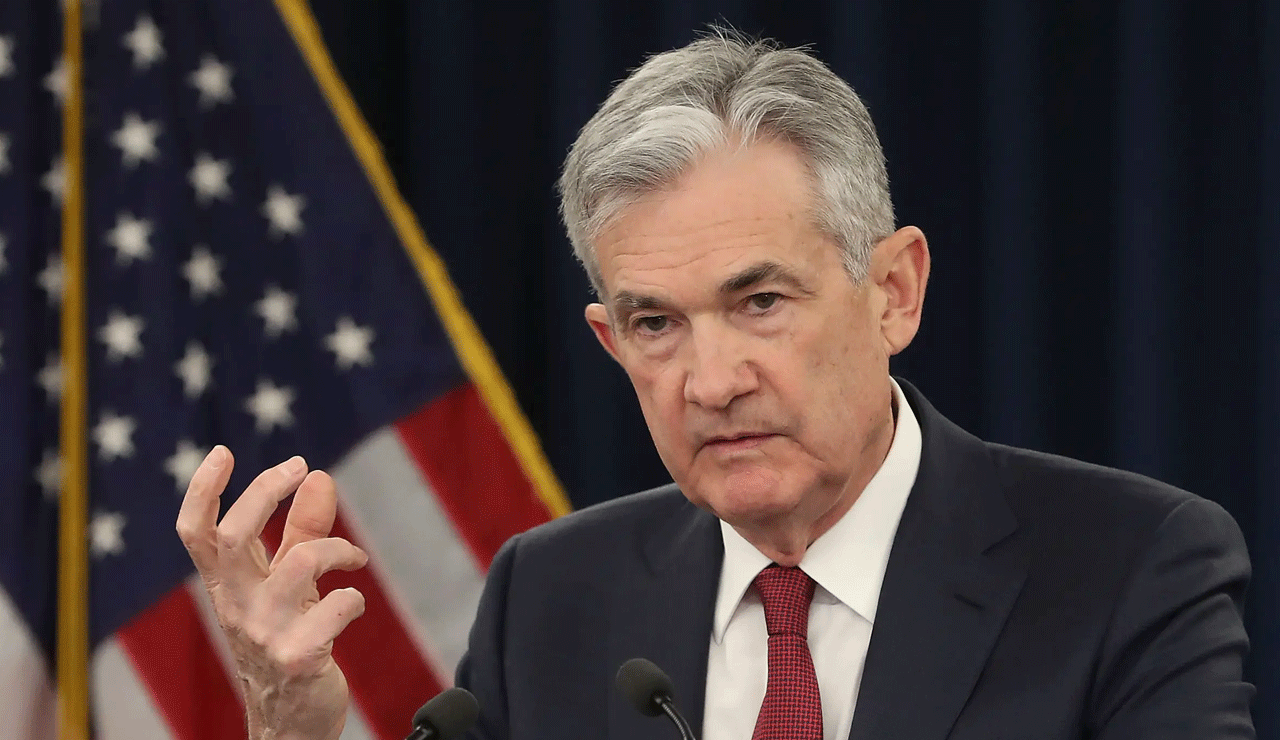Jerome Powell Warns of Inflation Surge and Slower Growth Due to New Tariffs
Federal Reserve Chair Jerome Powell has raised concerns about the Trump administration's newly imposed tariffs, suggesting they could lead to higher inflation and slower economic growth.

Federal Reserve Chair Jerome Powell has raised concerns about the Trump administration’s newly imposed tariffs, suggesting they could lead to higher inflation and slower economic growth. During remarks at the Society for Advancing Business Editing and Writing conference, Powell stated that the tariffs’ impact on the economy and inflation was “significantly larger than expected” and warned that these import taxes could cause at least a temporary rise in inflation. However, he also acknowledged that these effects might be more persistent.
Potential Impact of Tariffs on Inflation and U.S. Economy
Powell’s comments underline the Federal Reserve’s ongoing challenge in balancing economic growth and inflation control. He emphasized the Fed’s responsibility to ensure that any one-time rise in prices doesn’t develop into a lasting inflation issue. His remarks came in response to President Donald Trump’s recent decision to implement expansive tariffs that have already triggered reactions from global markets, including retaliatory measures by China.
Table of Contents
The Federal Reserve’s primary concern, according to Powell, will be to monitor the inflationary pressures while keeping interest rates stable. Powell’s tone suggests that the Fed will likely maintain its benchmark interest rate at about 4.3% for the foreseeable future, as higher borrowing costs help mitigate inflationary pressures. This decision contrasts with Wall Street investors’ expectations, who now anticipate up to five interest rate cuts in 2025, a scenario spurred by Trump’s tariffs announcement.
Fed’s Cautious Approach to Uncertainty
Powell also highlighted that the full economic impact of the tariffs is still uncertain, which has led to businesses postponing new investments. The Fed, too, is taking a “wait and see” approach until it gains more clarity about the tariffs’ long-term effects on the economy. While the Fed acknowledges the current strength of hiring and economic activity, Powell indicated that growing pessimism among consumers and businesses about future prospects could limit growth.
Also Read: Hyderabad Government Outsources Inspection of Indiramma Houses to Private Engineers
Additionally, Powell pointed out that inflation has dropped significantly from its peak in 2022 but noted that recent progress toward the Fed’s 2% inflation target has slowed. Given this, the Fed’s focus will likely remain on inflation control rather than economic stimulus.
Trump Urges Rate Cuts Amid Tariff Uncertainty
While Powell remains cautious about the economic outlook, President Trump has publicly urged the Fed to cut interest rates. In a post on his social media platform, Truth Social, Trump called for the Fed to lower rates, citing lower inflation and energy prices as reasons for a rate cut. “This would be a PERFECT time for Fed Chairman Jerome Powell to cut Interest Rates,” Trump said.
Despite Trump’s push for lower rates, economists predict that the tariffs could weaken the economy, increase prices, and possibly threaten hiring. In this scenario, the Fed faces a difficult choice between cutting rates to stimulate the economy or raising rates to combat rising inflation.
The Fed’s Tough Spot: Slower Growth and Inflation Risks
Kathy Bostjancic, Chief Economist at Nationwide, described the current situation as a tough spot for the Federal Reserve, with inflation set to rise and economic growth slowing. The Fed’s dual mandate of maximizing employment while ensuring price stability is increasingly complicated by the tariff policies, which could threaten both objectives.
While the labor market remains solid for now, with 228,000 jobs added in March, Powell acknowledged growing concerns about the future. The unemployment rate ticked up slightly to 4.2% from 4.1%, but the true impact of the tariffs on hiring and investment will likely become clearer in the coming months.
Uncertainty Ahead for the U.S. Economy
As the Trump administration’s tariffs continue to shake up the global economy, the U.S. faces significant economic uncertainty. The Federal Reserve’s cautious stance, combined with the unpredictability of the tariffs’ impact on inflation and growth, means that both businesses and consumers must prepare for potential challenges in the coming months. With global markets and the U.S. economy on edge, it remains to be seen how the Fed will navigate these turbulent economic waters.
